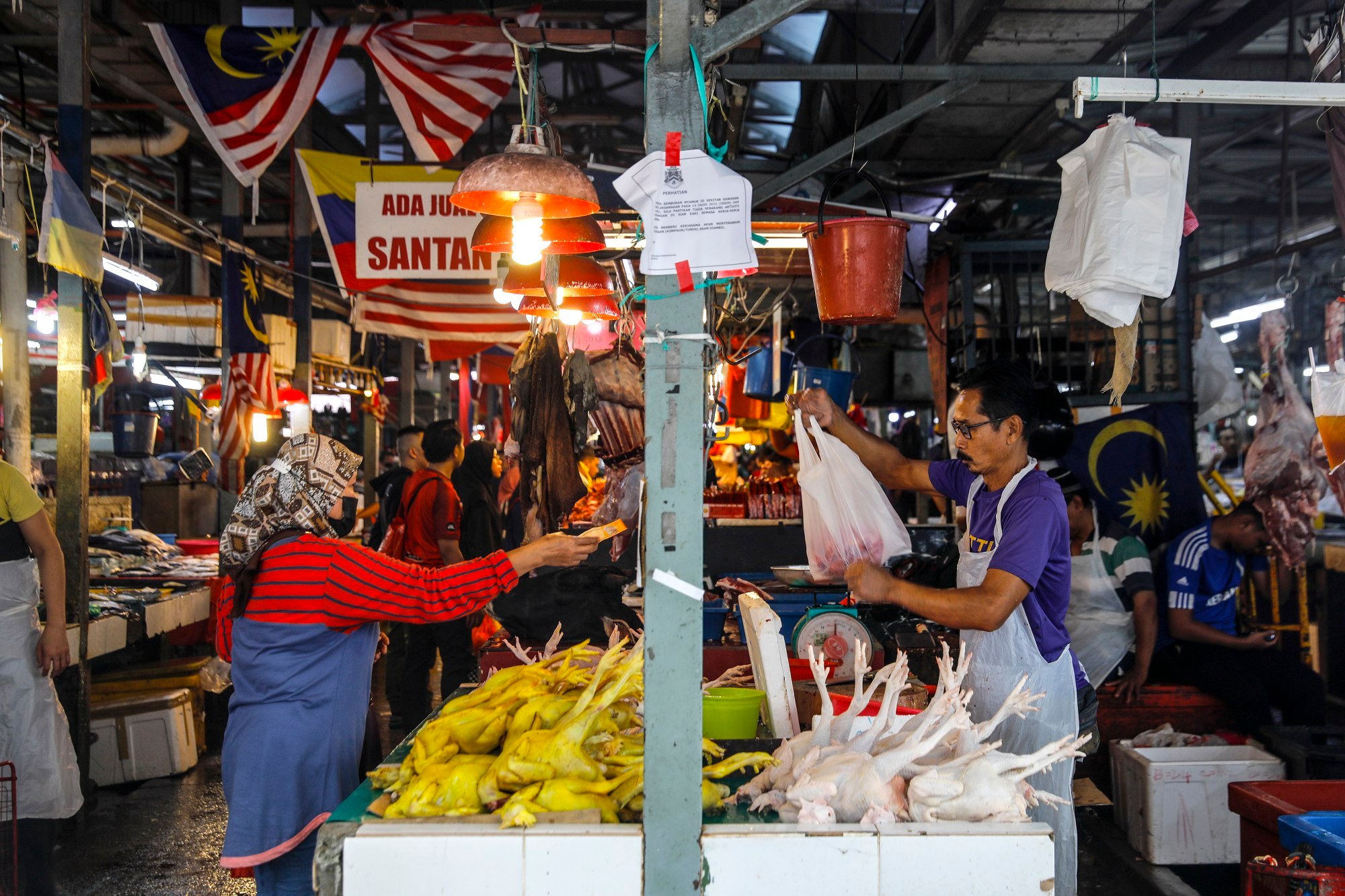Malaysian PM Anwar to spend billions in 5-year plan to reduce poverty, boost economic growth
- PM Anwar Ibrahim says poverty eradication, boosting exports of services and establishing an economy driven by the halal industry are key to his economic plans
- The new money would fund programmes aimed at increasing income among the poor, and also for areas including energy transition and digital industries
Malaysia
+ FOLLOW

Joseph Sipalan
+ FOLLOW
Published: 5:10pm, 11 Sep, 2023
Why you can trust SCMP
Malaysia will spend an extra US$3.2 billion on upgrading clinics, infrastructure and defence as well as boosting subsidies to the poor, Prime Minister Anwar Ibrahim has said, as he contends with slowing growth and stubbornly high inflation.
The government would also consider possibly reintroducing the controversial goods and services tax (GST), a minister said in a separate news conference, in a bid to broaden its revenue base without adding to the government’s 1 trillion ringgit (US$214 billion) debt pile.
Speaking on Monday at the midterm review of the 12th Malaysia plan (12MP) – a key document guiding economic development which is published every five years – Anwar said poverty eradication, boosting exports of services and establishing an economy driven by the halal industry and Islamic financing were also at the heart of his economic plans.
To achieve that, his administration will seek to spend an additional 15 billion ringgit (US$3.2 billion) between 2023 and 2025, according to Anwar, who is also finance minister.
https://www.scmp.com/week-asia/poli...decade-action?module=hard_link&pgtype=article
“This increase is to raise our ability to fund priority sectors for the people besides improving on management standards and redistribution of subsidies to cover the needs of people’s basic needs,” Anwar told a special parliamentary meeting.The government has revised its average growth forecast under the 12th Malaysia Plan (12MP) to 5 per cent per annum over the period covered by the five-year plan ending 2025, right down the middle of the 4.5-5.5 per cent annual pace initially forecast.
The increased budget will raise the total development bill under the 12MP to 415 billion ringgit.
“The country is now at a crossroads; whether we maintain the old policies and ways or push for change,” Anwar said, pegging the nation’s economic future to how successfully it can transition to renewable energy and restructure its industries to meet future demands.
Anwar became prime minister after a deeply divisive national election in November last year, but has been besieged by criticism of pandering to the resurgent conservatives right of politics instead of enacting promised reforms.
Critics have accused the prime minister of focusing too much on politics over the first eight months of his government, instead of taking action to ease high living costs.

A customer buys a chicken at a wet market in Kuala Lumpur. Malaysians continue to grapple with inflation and uneven recovery from the twin health and economic crises caused by the Covid-19 pandemic. Photo: EPA-EFE
Malaysians continue to grapple with inflation – which eased to 2.0 per cent in July after starting the year at 3.7 per cent – and uneven recovery from the twin health and economic crises caused by the Covid-19 pandemic.
Anwar said the new money would include 1.5 billion ringgit for programmes aimed at increasing income among the poor, and also for areas such as the energy transition and digital industries, high-value electrical and electronics exports, food security and the rare earths sector.
Malaysia would also develop a policy to ban exports of rare earth raw materials “to avoid exploitation and loss of resources”, Anwar said on Monday, adding that the ban would “guarantee maximum returns for the country”.
The rare earth industry is expected to contribute as much as 9.5 billion ringgit to the country’s gross domestic product in 2025 and create nearly 7,000 job opportunities, Anwar said.
To balance the increased spending, Anwar said the government would also look to broaden its tax base. Measures include the planned implementation of capital gains tax on profits made from privately-held shares sales in 2024.
While so far limited to unlisted shares, the proposal had raised concerns that it could have an effect on investments and savings.
Economic Affairs Minister Rafizi Ramli said the capital gains tax roll-out was part of a broader strategy to boost government revenue, which could include GST and direct or indirect taxes.
“We will be open to going through whatever ways we can to achieve fiscal sustainability through a wider revenue base,” Rafizi told a news conference in the parliament lobby.
In addition, the government wants to target subsidies at those most in need instead of the current system that hands out subsidies indiscriminately.
The government spent an estimated 80 billion ringgit on subsidies in 2022, in large part to maintain a ceiling on pump prices.
